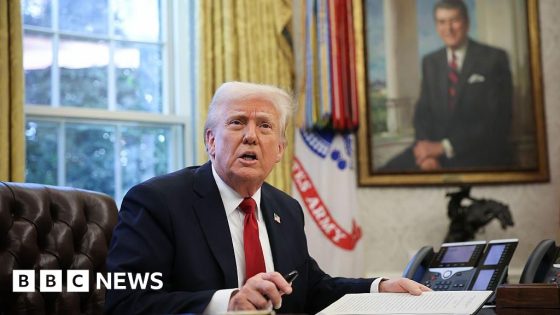On March 30, 2025, U.S. President Donald Trump stated he “couldn’t care less” if foreign car prices rise due to new import tariffs on vehicles. The 25% tariffs on cars and car parts will take effect on April 2, 2025, potentially impacting the auto industry and international trade relations.
- Trump indifferent to car price increases
- Analysts warn of production shutdowns
- New 25% tariffs effective April 2
- UK seeks exemption from US tariffs
- Global backlash from major economies
- Trump open to negotiation for value
Trump’s announcement of the new tariffs follows earlier considerations to pause their implementation, which was briefly enacted in early March. Major North American automakers, including Ford and General Motors, had urged the administration to reconsider these tariffs, citing potential negative impacts on production and prices. Analysts suggest that these tariffs could lead to a temporary shutdown of significant car production in the U.S., increase vehicle prices, and strain relationships with allies.
In his remarks, Trump emphasized that he hopes foreign carmakers will raise prices, as this would encourage consumers to buy American-made vehicles. He stated, “If you make your car in the united states, there is no tariff,” suggesting that domestic production would be financially advantageous for manufacturers. Trump’s comments reflect a broader strategy to promote American manufacturing and reduce reliance on foreign imports.
Internationally, reactions to the tariffs have been swift. The UK government has indicated it may retaliate against U.S. tariffs, arguing for an exemption based on their strong trading relationship. Other countries, including Germany and Canada, have also voiced strong opposition, with Germany stating it “will not give in” and Canada labeling the tariffs a “direct attack.” The potential for a trade war looms as these nations consider their responses.
In summary, Trump’s implementation of a 25% tariff on foreign vehicles aims to bolster American car sales, despite warnings from analysts about potential negative consequences for the U.S. auto industry and international relations. The global response indicates a readiness for potential trade conflicts as countries react to these tariffs.
































